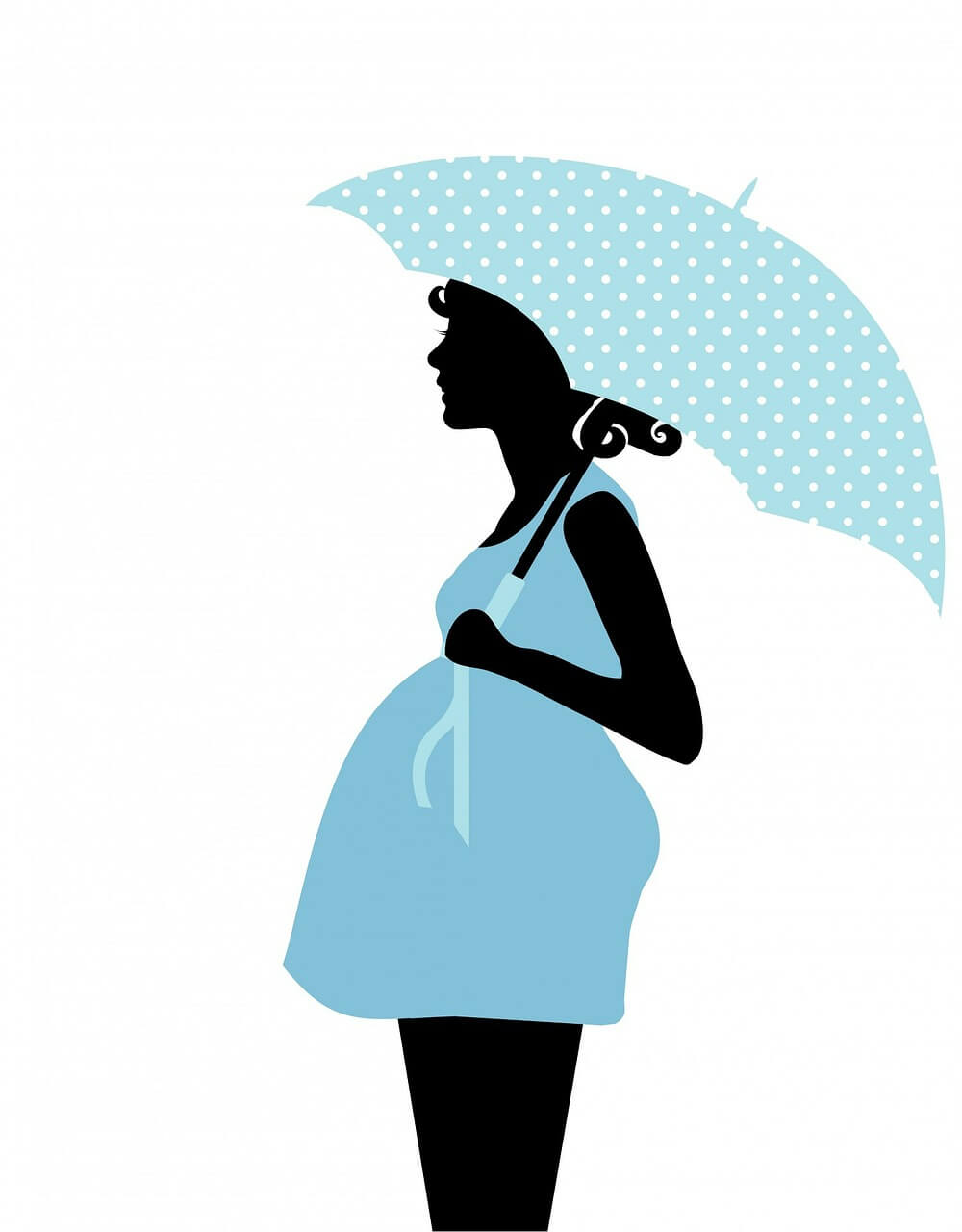I. Introduction
A. Importance of Nutrition During Pregnancy
Pregnancy is a crucial time in a woman’s life where maintaining optimal health and nutrition is of paramount importance. This period necessitates an increase in certain vitamins, minerals, and nutrients to ensure both the mother’s and the developing fetus’s wellbeing. A well-balanced, nutritious diet aids in the healthy growth and development of the baby and helps the mother maintain her health, prevent pregnancy complications, and prepare her body for breastfeeding [1]. Nutrition during pregnancy even impacts the baby’s health in adulthood, further highlighting its significance.
B. Brief Overview of Recommended Fruits and Vegetables
Fruits and vegetables play a vital role in the diet of pregnant women due to their high content of essential vitamins, minerals, and fiber. The recommended daily intake for pregnant women typically includes at least five portions of a variety of fruits and vegetables [2]. These are best consumed raw, cooked, or in juice form. The variety ensures a mix of different nutrients beneficial for both mother and child. In this article, we will delve into the specifics of which fruits and vegetables are particularly beneficial during pregnancy, the nutrients they provide, and how to safely incorporate them into your diet.
II. Essential Nutrients for Pregnancy
A. Overview of Essential Nutrients
During pregnancy, the body requires additional nutrients to support the growth and development of the fetus. There are certain key nutrients that have been identified as particularly important during this time. These include Folic Acid, Iron, Calcium, Vitamin D, DHA (Docosahexaenoic Acid), Iodine, and Protein. A balanced diet with a variety of fruits, vegetables, lean proteins, and whole grains usually provides these essential nutrients. However, in some cases, supplements may be recommended by healthcare professionals to meet the increased nutritional demands.
B. Role of Each Essential Nutrient in Pregnancy
- Folic Acid: Also known as folate when found in foods, this B vitamin is critical in the early development of the baby’s neural tube. It can also help prevent major birth defects of the baby’s brain and spine [3].
- Iron: Pregnant women need almost double the amount of iron compared to non-pregnant women to support the increased blood volume, promote fetal and placental growth, and prevent anemia.
- Calcium: Essential for building the baby’s bones and tooth buds. It also helps maintain the mother’s bone density during pregnancy.
- Vitamin D: Works with calcium to help the baby’s bones and teeth develop. It is also vital for maintaining healthy immune function.
- DHA: A type of Omega-3 fatty acid, DHA plays a crucial role in the development of the baby’s brain and eyes.
- Iodine: Essential for the production of thyroid hormones, which are crucial for the development of the baby’s brain and nervous system .
- Protein: Critical for the growth of fetal tissue, including the brain. It also helps with breast and uterine tissue growth during pregnancy .
III. Fruits Beneficial for Pregnancy
A. List of Beneficial Fruits
There is a variety of fruits pregnant women can incorporate into their diets to meet their nutritional needs. These include but are not limited to avocados, bananas, berries (such as strawberries, blueberries, raspberries), oranges, apples, and mangoes.
- Discussion of each Fruit and Its Benefits
- Avocados: Rich in healthy monounsaturated fats, they also provide high levels of folate and potassium.
- Bananas: An excellent source of vitamin B6, bananas also provide a good amount of potassium and vitamin C [4].
- Berries: Full of antioxidants, fiber, and vitamin C. Strawberries also have a good amount of folate.
- Oranges: High in vitamin C, fiber, and also a good source of folate.
- Apples: Provide fiber and vitamin C, and their natural sweetness can help with sugar cravings.
- Mangoes: High in vitamins C and A, and they also provide fiber.
- Nutrient Content of Each Fruit
Each of these fruits is packed with different combinations of the essential nutrients mentioned earlier. For instance, avocados are rich in folate and bananas are a good source of vitamin B6. Berries and oranges provide ample vitamin C, while apples offer fiber. Mangoes, on the other hand, contain high amounts of vitamins C and A.
B. How to Include These Fruits in Your Diet
Including these fruits in a pregnant woman’s diet can be as simple as having them as snacks between meals. They can also be incorporated into meals, like adding sliced fruits to cereal or yogurt at breakfast, or mixing them into salads for lunch or dinner. Fruit smoothies are another delicious way to consume multiple fruit servings at once.
C. Potential Risks or Precautions
While fruits are generally safe for pregnant women, it’s important to wash them thoroughly to remove any potential pesticides or bacteria. Certain fruits, like papaya, may need to be avoided or limited unless fully ripe, as they can trigger uterine contractions. Additionally, if a woman has been diagnosed with gestational diabetes, she should monitor her fruit intake due to the natural sugars and should consult her healthcare provider for personalized advice [5].
IV. Vegetables Beneficial for Pregnancy
A. List of Beneficial Vegetables
Some vegetables that are particularly beneficial during pregnancy include leafy greens (like spinach, kale, and Swiss chard), bell peppers, sweet potatoes, broccoli, and asparagus.
- Discussion of Each Vegetable and Its Benefits
- Leafy Greens: Excellent sources of iron, folate, and calcium. They also provide a good amount of fiber.
- Bell Peppers: High in fiber and rich in vitamin C, which helps with iron absorption.
- Sweet Potatoes: Packed with beta-carotene, an antioxidant that the body converts into vitamin A. Also a good source of fiber.
- Broccoli: Provides ample amounts of vitamin C, fiber, vitamin K, and potassium.
- Asparagus: High in fiber and a good source of folate.
- Nutrient Content of Each Vegetable
Each vegetable contributes a unique blend of nutrients. Leafy greens are a valuable source of iron, folate, and calcium. Bell peppers contribute generous amounts of vitamin C, aiding iron absorption. Sweet potatoes offer beta-carotene, which the body turns into vitamin A, and fiber. Broccoli is packed with vitamin C, fiber, vitamin K, and potassium, while asparagus provides fiber and folate.
B. How to Include These Vegetables in Your Diet
These vegetables can be included in the diet in numerous ways, such as part of salads, stir-fries, or roasted vegetable dishes. They can also be added to smoothies, soups, or even used in baking (e.g., sweet potato brownies).
C. Potential Risks or Precautions
As with fruits, it is important to wash vegetables thoroughly to remove any potential pesticides or bacteria. Vegetables should be cooked properly to ensure they are safe to consume, particularly for pregnant women who may have a slightly compromised immune system. For those with certain dietary restrictions or medical conditions, it’s always best to consult with a healthcare provider for personalized advice [6].
V. The Role of Organic Produce in Pregnancy
A. Definition of Organic Produce
Organic produce refers to fruits and vegetables that are grown without the use of synthetic pesticides, fertilizers, genetically modified organisms (GMOs), irradiation, or sewage sludge. The farming methods used aim to enhance soil and water quality, reduce pollution, and promote environmentally sustainable practices.
B. Benefits and Drawbacks of Consuming Organic Produce
Benefits of consuming organic produce include a lower exposure to pesticides and potentially higher nutrient content. Some studies suggest that organic fruits and vegetables may contain more antioxidants and lower levels of heavy metals compared to their conventionally grown counterparts. Organic farming practices are also considered more environmentally friendly due to the prohibition of synthetic pesticides and fertilizers, which can contaminate water, soil, and air.
On the downside, organic produce often comes with a higher price tag, which can be a significant consideration for many families. Also, the availability of organic produce may be limited depending on one’s geographical location and the time of the year.
C. Making the Decision: Organic vs. Non-Organic
When deciding whether to choose organic or non-organic produce during pregnancy, several factors should be considered, including budget, accessibility, and personal health priorities. Some individuals may prioritize reducing exposure to pesticides and consuming potentially more nutrient-dense food, while others may prioritize cost and availability. It’s also important to note that consuming a variety of fruits and vegetables, regardless of whether they are organic or not, is beneficial for health. Furthermore, the use of proper washing techniques can help to remove pesticide residues from non-organic produce.
Frequently Asked Questions
A. Can Too Much Fruit Be Harmful During Pregnancy?
While fruits are a healthy and necessary part of any diet, consuming excessive amounts can potentially be harmful during pregnancy. This is largely due to the high sugar content found in many fruits. Although this is natural sugar, consuming large amounts can lead to problems such as gestational diabetes or excessive weight gain. Furthermore, some fruits are high in certain compounds – for example, papaya contains latex, which can cause contractions if eaten in large quantities. As always, moderation and variety are key.
B. What If I Don’t Like Fruits or Vegetables?
If you don’t enjoy eating fruits and vegetables, there are a few strategies you can try. First, consider experimenting with different ways to prepare them. You might find that you prefer vegetables roasted rather than boiled, for example. Blending fruits and vegetables into smoothies can also be a good way to increase your intake without necessarily noticing the taste. Finally, remember that all fruits and vegetables count, so even if your choices are limited, try to include those that you do like in your meals.
C. Can I Take Supplements Instead of Eating Fruits and Vegetables?
While supplements can help ensure that you get enough of certain nutrients, they can’t replace the wide array of vitamins, minerals, and other beneficial compounds found in fruits and vegetables. Whole foods provide a complex matrix of components that interact with each other and with our bodies in ways that are not yet fully understood but that are unlikely to be replicated by supplements. Therefore, while supplements can be a useful addition to a healthy diet, they should not be relied upon as the primary source of nutrients [7].
Conclusion
A. Recap of the Importance of Fruits and Vegetables in Pregnancy
Fruits and vegetables are an essential part of a healthy pregnancy diet, providing key nutrients such as fiber, vitamin C, potassium, and folic acid. These nutrients support the development of the fetus, maintain the health of the expectant mother, and may even help prevent certain birth defects. While all fruits and vegetables offer benefits, some that are particularly recommended during pregnancy include avocados, oranges, bananas, leafy greens, bell peppers, and sweet potatoes due to their higher nutrient density.
B. Encouragement for a Healthy Pregnancy Diet
It’s important to remember that while nutrition is crucial during pregnancy, it doesn’t have to be complicated. The goal is to consume a variety of nutrient-rich foods in a balanced way that supports both you and your growing baby. It can be beneficial to speak with a healthcare provider or a dietitian about your specific needs and preferences. Eating a variety of fruits and vegetables, maintaining a balanced diet, and making informed decisions about organic and non-organic produce can all contribute to a healthy and successful pregnancy [8].










